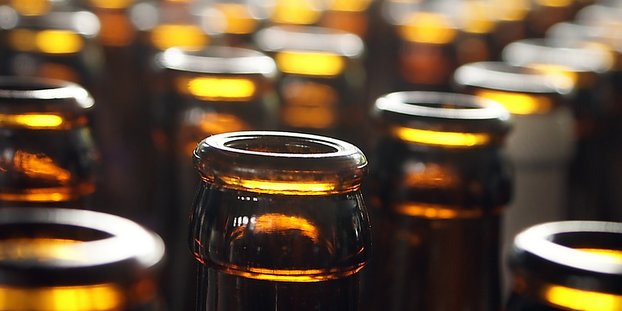
You have an idea for a trademark for your new beer. You want to get the trademark registered with the U.S. Trademark Office. How difficult can it be?
A trademark is a word, a symbol or a design, that serves to identify the source of goods or services. A trademark is part of a consumer protection system. Since a trademark is evaluated from the perspective of a consumer making a purchase decision, the evaluation of a trademark is at least partially subjective.
Don’t miss any of our extensive craft beer trademark coverage. Click here to read more stories.
Your first step is to do an Internet search for your candidate trademark to find out if someone is already using it. The use of a trademark in commerce, even without federal registration (a “common-law trademark”) provides certain rights to the trademark owner. If your candidate trademark pops up in Google search results associated with beer, wine or spirits, that is a good and economical time to start over with a different candidate trademark.
Likelihood of confusion means the likelihood of confusion in the consumer’s mind as to the sources of the goods or services because of some similarity between your trademark and another trademark that is already registered and/or in use. The subjective judgment of a U.S. trademark examining attorney of what is in the mind of the consumer will determine whether your trademark candidate is registered.
Likelihood of confusion analysis is highly fact-specific. The U.S. Trademark Office looks at as many as 13 factors in a likelihood of confusion analysis. Each factor may be given different weight depending on the facts of the case. The two factors that are often the most important are the similarity of the trademarks and the similarity or relatedness of the goods. Even if the goods in question are different from, and thus not related to, one another in kind, the same goods can be related in the mind of the consuming public as to the origin of the goods.
The simplest case is using the same trademark on the same or similar product. For example, if another brewery has a registered trademark JACKSTAND for stout, an attempt to register JACKSTAND for your lager would be refused on the grounds of likelihood of confusion with the other brewery as the source of the product.
If the trademarks are similar, and the products are the same, a trademark can be refused registration if the product is the same. In one case, registration of SUNNY HAZE for beer was refused on the grounds of likelihood of confusion with another trademark for beer, PURPLE HAZE. Important factors in the analysis were that the dominant feature of both trademarks was the same word, HAZE, and that PURPLE HAZE had been established as a famous mark.
In the U.S. Trademark Office, beer and wine can be considered related products. The U.S. Trademark Office has refused to register HB as a trademark for wine on a likelihood of confusion basis because there already was a registered trademark HB for beer. In contrast, BELL HILL was registered for wine, even though there is a trademark BELL’S for beer.
It is important to do a trademark search to see if your candidate trademark is available. In evaluating the search results, it is important to look at trademarks for wine and spirits as well beer to identify possible problems concerning likelihood of confusion. Since the U.S. Trademark Office considers multiple factors in analyzing the likelihood of confusion, and can give different weight to different factors depending on the facts of each case, it can be useful to have the help of a trademark attorney.
 Roger Zimmerman, partner with Bowditch & Dewey, has extensive experience in various aspects of intellectual property, including client counseling, licensing and agreements, and preparation and prosecution of U.S. and international patent applications in the areas of biotechnology, pharmaceuticals, materials, chemistry and medical devices. Prior to practicing law, Roger was a member of the faculties of Rush Medical College and the University of Illinois at Chicago.
Roger Zimmerman, partner with Bowditch & Dewey, has extensive experience in various aspects of intellectual property, including client counseling, licensing and agreements, and preparation and prosecution of U.S. and international patent applications in the areas of biotechnology, pharmaceuticals, materials, chemistry and medical devices. Prior to practicing law, Roger was a member of the faculties of Rush Medical College and the University of Illinois at Chicago.






RT @BrewandCovered: You have an idea for a trademark for your new beer. How difficult can it be? http://t.co/ZBZsCx12eR
Craft beer trademarks: Likelihood of confusion http://t.co/aCVT448Yht
Craft beer trademarks: Likelihood of confusion http://t.co/UF4RFdjJjs @CraftBrewingBiz #legal #beer #trademarks http://t.co/9iKlzJozXZ
You have an idea for a trademark for your new beer. How difficult can it be? http://t.co/ZBZsCx12eR
Craft beer trademarks: Likelihood of confusion http://t.co/KzUT7xfa8u via @craftbrewingbiz
If you own a brewery or beer brand, READ IT >> Craft beer trademarks: Likelihood of confusion http://t.co/OIVTDyIgxb @CraftBrewingBiz
Craft Beer #Trademarks: Likelihood of Confusion http://t.co/F8v2NapUkf #craftbeer #brewery http://t.co/zIML0mQSQV
Craft Beer Trademarks article by Roger Zimmerman appears on @CraftBrewingBiz http://t.co/3hZpfl8Bej
Craft beer trademarks: Likelihood of confusion http://t.co/5rdmFqbFJS via @craftbrewingbiz
IP Attorney Roger Zimmerman of @BowditchDewey on #craftbeer trademarks, http://t.co/CrUoVbW1K1 @craftbrewingbiz
CRAFT BIZ: #CraftBeer trademarks and the likelihood of confusion
#ctbeer #branding #craftbeveragemedia
http://t.co/BtjOb3i2wY
A thing we pride ourselves on at the BPA is protecting your brand. Make sure you have the right partner.. http://t.co/PPxxHCdbLT #craftbeer
Krones AG liked this on Facebook.
Stacy Allura Hostetter liked this on Facebook.
Bob Hostetter liked this on Facebook.
Craft beer trademarks: Likelihood of confusion http://t.co/HIYP2Ld4zO via @craftbrewingbiz